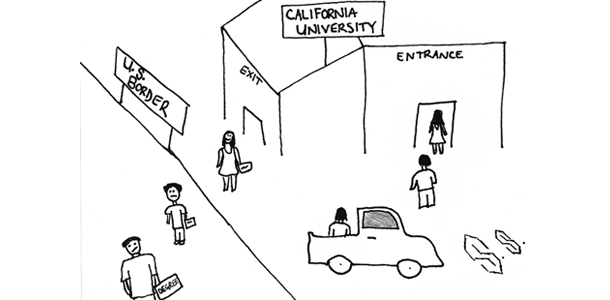After the DREAM Act was signed by Gov. Jerry Brown, a wave of anger started to creep over many college students. There’s this feeling that by offering some illegal “aliens” a chance to succeed, citizens of the United States will be deprived of success.
Unfortunately, these are merely false prophecies.
First off, this country is full of “immigrants,” so let’s cut it with the negative connotations that get thrown around with the word.
Less than 1 percent of the population is an American Indian or an Alaskan native, according to the most recent U.S. Census Bureau.
This means that over 99 percent of the population moved here, in hopes of a better future at one point or another.
The first logical argument against the DREAM Act is that it will cost the state millions of dollars.
This is true. It is estimated that at least $13 million will be spent because of this new bill, according to the California Student Aid Commission.
What is forgotten during this calculation of the costs are the benefits.
“If 2 percent more Californians has associate’s degrees and another 1 percent more earned bachelor’s degrees, California’s economy would grow by $20 billion, our state an local tax revenues would increase by $1.2 billion a year and 174,000 new jobs would be created,” according to the Campaign for College Opportunity.
This isn’t a very difficult concept to understand.
On average, people who learn more, earn more. People who earn more, spend more. And, when people continue to spend more throughout their lives, the economy improves—more jobs, more tax money coming in and fewer future economic cutbacks because of it.
“What about us ‘legal’ college graduates?” asks opponents of the DREAM Act. “What are we to do with all of these ‘illegals’ competing with us, taking our jobs?”
But these complaints are also false.
“[The] Public Policy Institute of California projects a deficit of 1 million college educated workers in California by 2025 unless the state is able to substantially increase rates of college enrollment and graduation,” according to the institute’s 2010 report.
So these undocumented students will not be hurting us, but helping us.
It’s easy for a country to scapegoat a group of people, and that’s what seems to be happening. But when the opposing arguments are carefully examined, it is clear that the DREAM Act is, and will continue to be, a positive for us all.

